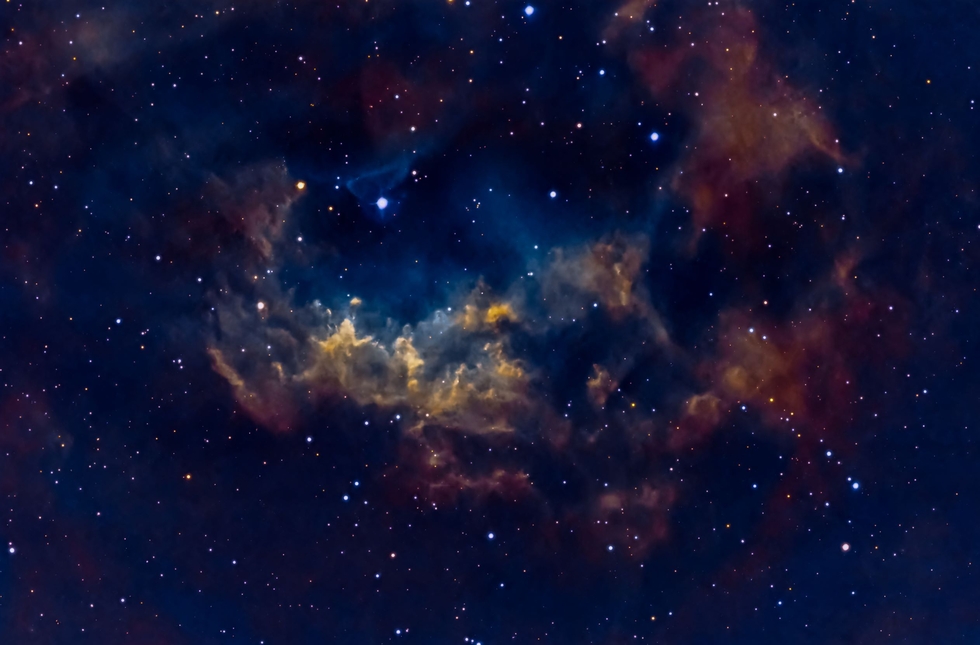Sh2-261: Lower's Nebula
Sh2-261: Lower's Nebula
Sh2-261, sometimes known as the Lower Nebula, is an emission nebula in the constellation Orion.
It is located in the northernmost part of the constellation, about 6° west of Alhena (γ Geminorum); it is easily visible in long-exposure photos taken even with medium-powered amateur instruments. It lies in the clear wake of the Milky Way in opposition to the galactic center and is surrounded by rich background star fields. The best time for observing it in the evening sky falls in the months between January and May, and although it is located in the northern celestial hemisphere, it can be observed from all populated areas of the Earth.
It is an H II region located on the outermost edge of the Orion Arm, at the limit of the galactic region between it and the Perseus Arm; it is located on the line of sight of the southernmost part of the Gemini OB1 association. One of the stars responsible for the ionization of the region's gases would be the blue star HD 41997, a fugitive star of spectral class O7.5V; to this are added other stars, including the blue star BD+15°1079, class B0. This star has sometimes been referred to as class O7, thus shifting the distance of the nebula up to 2000 parsecs due to the increase in the discrepancy between absolute magnitude, evidently brighter in a class O star, and apparent magnitude; through the analysis of the other ionizing stars, a distance of about 1000 parsecs (3260 light years) has been calculated, which seems to be more reliable, also given the redetermination of the star BD+15°1079 as belonging to class B0.
It is located in the northernmost part of the constellation, about 6° west of Alhena (γ Geminorum); it is easily visible in long-exposure photos taken even with medium-powered amateur instruments. It lies in the clear wake of the Milky Way in opposition to the galactic center and is surrounded by rich background star fields. The best time for observing it in the evening sky falls in the months between January and May, and although it is located in the northern celestial hemisphere, it can be observed from all populated areas of the Earth.
It is an H II region located on the outermost edge of the Orion Arm, at the limit of the galactic region between it and the Perseus Arm; it is located on the line of sight of the southernmost part of the Gemini OB1 association. One of the stars responsible for the ionization of the region's gases would be the blue star HD 41997, a fugitive star of spectral class O7.5V; to this are added other stars, including the blue star BD+15°1079, class B0. This star has sometimes been referred to as class O7, thus shifting the distance of the nebula up to 2000 parsecs due to the increase in the discrepancy between absolute magnitude, evidently brighter in a class O star, and apparent magnitude; through the analysis of the other ionizing stars, a distance of about 1000 parsecs (3260 light years) has been calculated, which seems to be more reliable, also given the redetermination of the star BD+15°1079 as belonging to class B0.
SPECIFICATIONS
Telescope
CHI-1-CMOS
Camera
QHY 600M Pro
Location
EL SAUCE OBSERVATORY, CHILE
Date of observation
2024-12-09
Filters
HSO
Processing
Pixinsight and Photoshop
Credits
Credit Sauro Gaudenzi / Data Telescope Live


